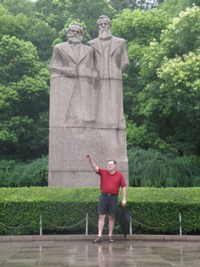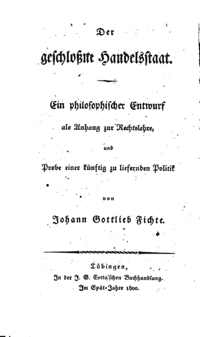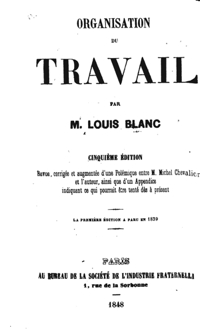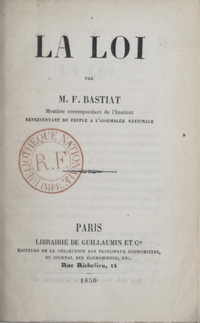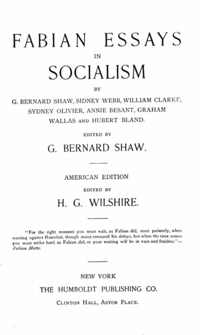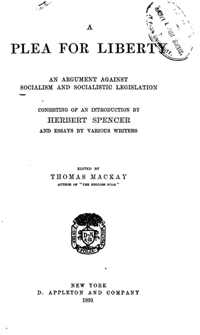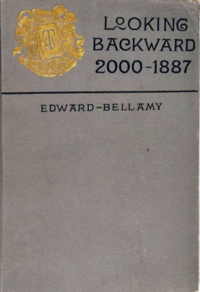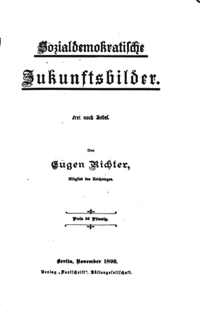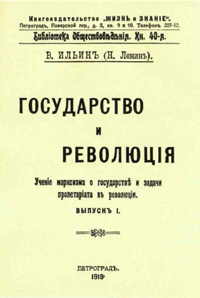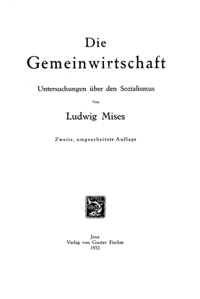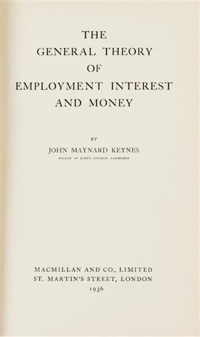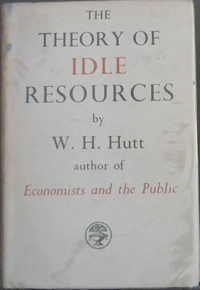
Socialism and the Classical Liberal Critique
[Date: 3 April, 2012]
[Updated:
13 December, 2023]
[David and Marx in Shanghai]
|
IntroductionThis is a summary of the material on socialism and the Classical Liberal critique which we have online to date. There are also a couple of blog posts on this topic:
On the critique of socialism see especially the Austrian economist Ludwig von Mises' early and devastatiing critique of central planning in Socialism (1922) and the work of the Scottish economist and poet Alexander Gray (1882-1968) The Socialist Tradition: Moses To Lenin (1946). The latter is a comprehensive history of socialism which is peppered with his great insight, deep learning, and sceptical and witty observations. An early argument in favour of a completely "closed economy" where the state would control every aspect oif production and exchange, in other words a vision of a centrally planned economy which the Bolsheviks would attemtpo to introduced in Russia in 1917, was provided by Johann Gottlieb Fichte (1762-1814) in Der geschlossene Handelsstaat (The Closed Commercial State) (1800) [auf deutsch in HTML and facs. PDF]. He was reacting to the economic impact of the Napoleonic Wars on the fragmented German states and the rise of England as an industrial and commercial power. In France, the same concerns led the liberal Jean-Baptiste Say to write his Treatise on Political Economy (1803) [HTML] in which he advocated the exact opposite, the most “open commercial state” imaginable. A Surevy of the Socialist Tradition and its CriticsAs socialist ideas began to emerge during the 1820s and 1830s in Europe, especially in France, classical liberals began to turn their attention to this new set of ideas calling for greater intervention by the state in the economy. I think we can identify four key periods when classical liberals were active in opposing socialist and interventionist ideas more broadly understood:
The 1840s in FranceThere were three influential French socialists during the 1840s who were all elected to the Chamber of Deputies during the revolution and sparred with Bastiat and the other liberals and political economists. They and their main texts are:
Although Karl Marx (1818-1883) was not French he lived in France in the 1840s and did considerable research in political and economic theory there, as well as writing and distributing his Communist Manifesto (Feb. 1848) to a German Workers club based in Paris during the early weeks of the 1848 Revolution; in German [HTML] and English [HTML] The classical liberals and political economists and some conservatives replied to the socialists in a massive way both in the Chamber of Deputies, the press, and the publishing firm Guillaumin which published dozens of their books and pamphlets. The main classical liberals were:
Adolphe Thiers (1797-1877) was a conservative politician and historian and not a classical liberal but he wrote a book defending the right to own property which was under attack during the 1848 Revolution: De la Propriété (1848) (en français HTML] and in English with a slightly different title, The Rights of Property: A Refutation of Communism & Socialism (1848) [HTML]. Molinari reviewed this book and criticised Thiers for ignoring one of the main complaints of the socialists about the current distribution of property, namely, that one should not defend unjustly acquired property by means of state privileges and monopolies The 1880s and 1890s in France, Italy, England, and GermanyFrance: Following the defeat of the Paris Commune in 1871 French socialists took two routes, one intellectual by working within the economics faculties of the state University system (where economics was taught only in the Law Faculties), and the other with the formation of socialist parties which would get into power by means of elctions. The “Parti Ouvrier Français” (French Workers Party) was formed in 1879, while in the Universities the following scholars pushed interventionist ideas:
These socialists and interventionists were opposed by classical liberals like Frédéric Passy (1822-1912),Yves Guyot (1843-1928), Paul Leroy-Beaulieu (1843-1916), and Ludwig Bamberger (1823-1899). See:
Britain and the Colonies: The Irish playwright George Bernard Shaw (GBS), along with the writers and educators Sidney and Beatrice Webb, the feminist Emmeline Pankhurst, and the novelist H. G. Wells, founded the Fabian Society in England in 1884. Its aim was to bring about a socialist society by means of intellectual debate, the publication of books and pamphlets, and the “permeation” of socialist ideas into the universities, the press, government institutions, and political parties.
This was quickly replied to by the Liberty and Property Defence League (founded 1882) with two volumes of essays edited by Thomas Mackay:
Herbert Spencer also joined in with works on "the coming slavery" of socialist interventionism in The Man versus the State (1884) HTML and facs. PDF, as did the individualist political philosopher Wordsworth Donisthorpe (1847-1914) and Auberon Herbert (1838-1906):
In addition to the Fabian socialist challenge (and soon the Labour Party formed in 1900) classical liberalism was being challenged from within, so to speak, by political philosophers like L.T. Hobhouse, John A. Hobson, T.H. Green who developed a more interventionist form of liberalism which they called the “New Liberalism” (or what the Americans now call just "liberalism", or elsewhere "social" liberalism) which would have enormous influence in the 20th century. See for example the important works by
Germany: The main theorist of the "communist" or "revolutionary" variant of socialism, Karl Marx (1818-1883), died before he could finish and publish all the volumes of his Das Kapital. (vol. 1 appeared in his lifetime in 1867). This was left to Friedrich Engels who published vols. 2 (1884) and 3 (1896). See
The appearance of the final volume in 1896 prompted the Austrian economist Eugen von Böhm-Bawerk to write a comprehensive demolition of the "Marxian system" in "Zum Abschluss des Marxschen Systems" ("On the Completion of Marx's System (of Thought): A Critique) in English [HTML and facs.PDF] and German [HTML and facs.PDF). Given the paucity of specific plans for what a future socialist society would look like and how it would function, there were several attempts to imagine it in the form of speculative fiction. The best known one was by the American socialist Edward Bellamy in Looking Backward. 2000-1887 (1888) [HTML]. Another was by the Australian William Lane (John Millar), The Workingman’s Paradise (1892) and also H.G. Wells, A Modern Utopia (1905). This should be read alongside the dystopian picture of a socialist future by the German classical liberal politician Eugen Richter in Pictures of the Socialistic Future (1891/1893) in German [facs. PDF and HTML] and English [facs. PDF and HTML] Post-1917Because the "revolutionary socialists" like Karl Marx were very coy about describing in detail how the future centrally planned communist economies would be run (unlike the "democratic socialists" who saw the legislative process as the means to build socialism gradually), we therefore have to make do with sketchy outlines such as:
The economic policies of the Bolsheviks were immediately criticised by
which he continued for the rest of his life in a series of works criticising "interventionism" of all kinds, whether "revolutinary" or "parliamentary" in form. By the mid-1920s Mises had expanded his critique of Bolshevik central planning into a more general theory of "Interventionismus" or "interventionism" by which he meant any large-scale government intervention in the economy without the direct ownership by the state of all private property and the means of production (such as factories and farms). He began with an article on “Interventionismus” (1926) [HTML auf deutsch] which he expanded and developed over the years in a series of further articles and books. He had in mind (in chronological order) the policy of "Kriegssozialismus" (war socialism) pursued in Germany during WW1, the policy of economic "autarchy" (national self-sifficiency) pursued by the Nazis in the 1930s and 1940s, and the policies of most western nations after WW2, namely Keynesian inspired interventionism concerning interest rates and the supply of money, as well as the interventionism and redistribution of wealth required to build the welfare state.
The Keynesian RevolutionThe monetary theory of the English economist John Maynard Keynes (1883-1946) produced a revolution in thinking about how governments in the non-Communist world could and should control the economy to overcome the defects of "laissez-faire capitalism", one which would conme to dominate the world for the next 80 or 90 years. In many ways, it was a return to the oilder socialist ideas of Proudhon put forward in the 1848 Revolution for a "Peoples" or "Exchange" bank to be set up by the state in order to provide low or zero interest loans to workers to fund their "ateliers" or workshops.
These ideas were quickly opposed by classical liberals such as:
Apparently to no avail given current economic policy. |
